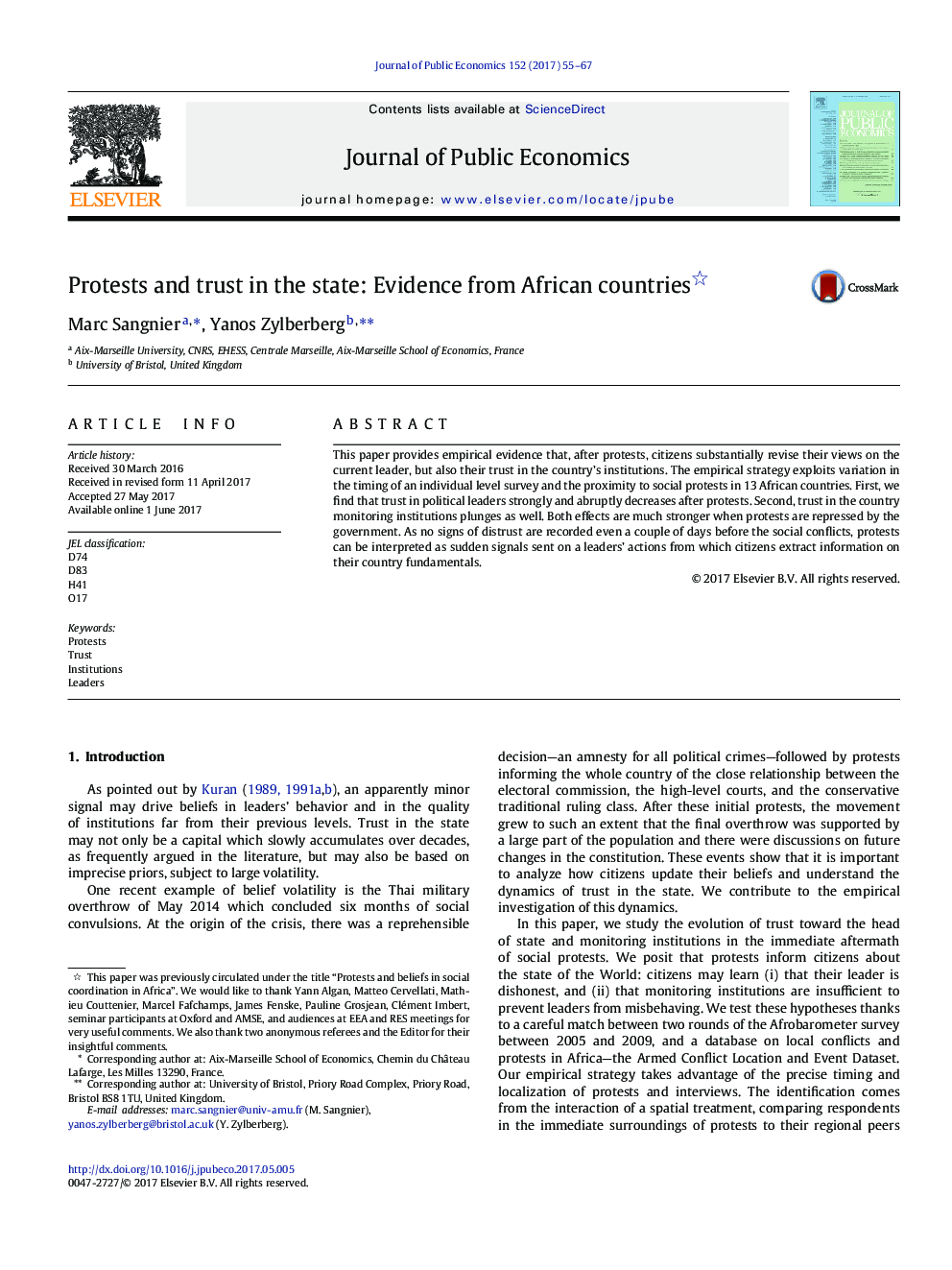| Article ID | Journal | Published Year | Pages | File Type |
|---|---|---|---|---|
| 5101769 | Journal of Public Economics | 2017 | 13 Pages |
Abstract
This paper provides empirical evidence that, after protests, citizens substantially revise their views on the current leader, but also their trust in the country's institutions. The empirical strategy exploits variation in the timing of an individual level survey and the proximity to social protests in 13 African countries. First, we find that trust in political leaders strongly and abruptly decreases after protests. Second, trust in the country monitoring institutions plunges as well. Both effects are much stronger when protests are repressed by the government. As no signs of distrust are recorded even a couple of days before the social conflicts, protests can be interpreted as sudden signals sent on a leaders' actions from which citizens extract information on their country fundamentals.
Related Topics
Social Sciences and Humanities
Economics, Econometrics and Finance
Economics and Econometrics
Authors
Marc Sangnier, Yanos Zylberberg,
